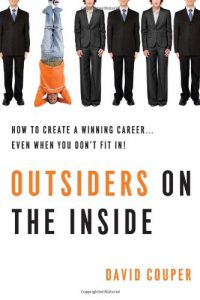Growing Your REAL Bottom Line
Higher purpose attracts great talent.

Great talent drives performance.
Great performance raises sales and profits.
Your employees are your real bottom line. If your employees are unhappy, your company suffers. DCC gets to the heart of the matter, so we can get to the heart of your people. The cost for retaining top talent is nothing compared to the cost of losing them.
Consider the Real “Total Cost” of Losing an Employee:
Many studies show that the total cost of losing an employee can range from tens of thousands of dollars to 1.5-2x their annual salaries.
- Cost of hiring a new person (advertising, interviewing, screening, hiring).
- Cost of onboarding a new person (training, management time).
- Lost productivity (a new person may take 1-2 years to reach the productivity of an existing person).
- Lost engagement (other employees who see high turnover disengage and lose productivity).
- Customer service and errors (new employees take longer and are often less adept at solving problems). In healthcare, this may result in much higher error rates, illness, and other very expensive costs (which are not seen by HR).
- Training cost (over 2-3 years you likely invest 10-20% of an employee’s salary or more in training, that is gone).
- Cultural impact (whenever someone leaves others take time to ask “why?”).
Bersin, Josh, LinkedIn, Employee Retention Now a Big Issue: Why the Tide has Turned, 16 August 2013.
Is your organization suffering from retention issues? Are your employees constantly complaining about their jobs and managers? If you answered “YES!” it’s time to let go of the disengaged status quo and move forward in creating a thriving, value-driven environment for your company. David Couper Consulting offers transformational solutions in making this happen for you.
Talent Development Life Cycle

DCC’s successful Talent Development strategies support companies throughout the entire Talent Development Life Cycle.
Talent Acquisition
DCC partners with experts in all aspects of talent acquisition to improve or create effective solutions. Talent development starts with understanding an organization’s needs and then finding the right people who not only have the right skills and knowledge but also will align with the culture and goals of the team.
David Couper worked with Chase Bank on a program to support managers in making appropriate decisions as they hired team members. By giving them simple guidelines and techniques, the managers reduced the risk of costly, not-in-alignment mis-hires.
Onboarding & Orientation
Most companies, including DCC, will have a first day orientation, which includes reviewing the key policies in an HR Handbook. After that, on boarding may be a training program or being assigned a buddy. These programs are often inconsistent, limited and don’t focus on the cultural issues that a new hire will face. DCC works on the whole package so that your most valuable commodity – your people – feel at home and can contribute successfully to the organization’s vision.
David Couper worked with Arthur Andersen to create a comprehensive program to onboard experienced hires. Experienced hires were often experts in their field, making at least six figures, who were going to create new business lines or support existing services. These hires were unlike the average hire who had joined straight from college and grown up in the culture. HR found that 50% of these experienced hires were leaving within a year, meaning a huge $5 million cost in recruiting and even more in lost opportunity. The issue arose because of the lack of understanding of the cultural differences and how to get things done in a large organization.
The solution was a high-energy workshop as part of a one year Onboarding Program that started on day one with assigning a mentor and continued with scheduled learning sessions with key employees and successful long-term experienced hires. Within a year, demand was so high that the workshop was being offered once a month up from the original once a quarter, and the retention numbers started to reverse.
Performance Management
Managing employee performance for many companies means either annual reviews that consume a leader for a few weeks at the beginning of the year or disciplinary action. For DCC, performance management is actually performance development. It’s not a once a year activity, and it’s not based on what the person is not doing. Instead, it’s a process where the manager consistently gives positive feedback and feedback for improvement, in the moment.
Ideally, there are frequent and focused opportunities for reflection, redirection and celebration of the person’s progress. We see performance development like when a child begins to walk. The child’s caretaker spends time encouraging and focusing the child to ensure the desired outcome. It’s not something that happens once a year! It takes a lot of practicing on the child’s part to learn to walk by itself with the encouragement of the caregiver. By making performance development part of the culture, an organization can thrive, too.
While working with Arthur Andersen, David Couper developed a process to integrate performance development on a day-to-day process. The firm saw that the newest and least senior members of the team were often the ones who had the most contact with clients and were best able to provide enhanced service solutions. Developing them was key! The process integrated on-the-spot coaching and mentoring so that employees were highly involved in the project. This targeted focus on the employee meant that their performance enhanced as they experienced that they mattered and their work had value.
Career Development
 DCC believes that everyone should be happy, engaged, and fulfilled at work. Career development is vital to that goal. It starts with assessing who we are, and working out what careers will work for our pocketbook and our purpose in life. We provide career development as an integrated package of learning content, group and 1:1 coaching, and structured activities for long-term success. The goal is to develop the people in alignment with the goals of the organization so that they produce extraordinary results.
DCC believes that everyone should be happy, engaged, and fulfilled at work. Career development is vital to that goal. It starts with assessing who we are, and working out what careers will work for our pocketbook and our purpose in life. We provide career development as an integrated package of learning content, group and 1:1 coaching, and structured activities for long-term success. The goal is to develop the people in alignment with the goals of the organization so that they produce extraordinary results.
David Couper is an expert on careers and career development, appearing on over 100 television, radio and other outlets’ programs. He and his team have coached hundreds of individuals, from executives making seven figures to entry-level employees making seven dollars an hour, on how to be successful in their careers. His book “Outsiders on the Inside: How to have a Winning Career Even When You Don’t Fit in!” was an Amazon Best Seller in 2010.

“By making performance development part of the culture, an organization can thrive, too.”
Outplacement
Outplacement is a bittersweet assignment for DCC. When a company decides to reorganize, downsize, or has to close its doors, there is a human cost to that decision. For many people, being laid off is like part of who they are has died. It can be an emotionally stressful time as a person struggles to redefine who they are and pay their bills. It can also be an opening for many people. Sometimes, being forced to make a decision about their career enables employees to follow their passion, whether it is going back to school, starting a new business, or going into another type of work.
DCC honors the sadness and the joy in this situation by providing real-life support and feedback that works, plus helps with the inner work needed to heal the wounds of being let go. For a company, not only are they doing the “right thing” by helping their employees who now are not part of their family, but also it makes for smart business. Your employees are your best brand ambassadors. Unhappy ex-employees are not good for the organization’s brand or balance sheet.
DCC works with BOTH those who leave the organization and those who remain. Often the feelings that “survivors” have can be very negative to an organization yet most outplacement firms concentrate on those who are leaving.
For survivors—DCC works with HR and Senior Leadership to communciate and manage the upsets around the change. This is custom designed for your organization’s needs based on your unique culture.
For leavers—DCC has a range of services from large scale training on career development and job-hunting to one-on-one coaching for senior executives.
David Couper worked with Thermador, owned by Siemens Bosch. The organization was moving operations from California to North Carolina, and many of the employees were not willing to transfer, so they were moving on. Out of the employees that David Couper worked with, all of those who wanted to find another job did so within three to six months of leaving. The success was due to the individual coaching and to the dedication of the employees to find another position.
Succession Planning
One of DCC’s clients knows that 50% of its leadership team can retire within the next five years. They also know that the successors will also have that retirement opportunity. Organizations need to both plan for the potential exodus and how to capitalize on the wisdom of this group. Many companies have comprehensive systems for working out who are the high potentials and who should be groomed for future glory. Fewer of them have thought about how to transfer the knowledge to the ranks.
DCC looks at all the people in an organization and how they can be developed for the future, whether they will be the future leaders or not. We come up with creative and effective ways of sharing knowledge as people retire or willingly leave their employment.
Working with a leader who was planning to retire within two to five years, DCC put a series of challenge assignments together for the four potential successor candidates. These activities were essential for the growth of the business. Combined with focused coaching, the impact empowered the candidates, improved productivity and a clear solution came forward within the team for who could be the ideal successor.
Need Support Finding the Best Solution?
Contact our team to build a personalized plan today.
